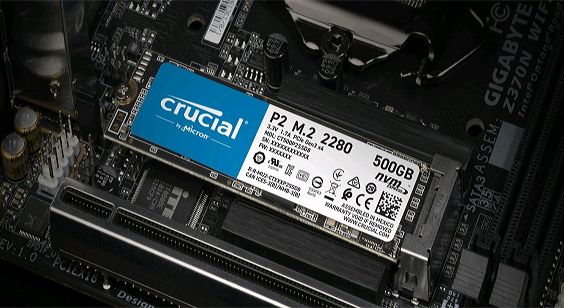Crucial® P5 Plus SSD
Written on .
Kingston FURY™ Renegade DDR4 RGB
Written on .
Kingston FURY™ Beast DDR4 RGB
Written on .
Kingston FURY™ Renegade DDR4
Written on .
Crucial Warranty and Cryptocurrency Mining
Written on .
Crucial P2 NVMe PCIe SSD
Written on .
BRS50
Written on .
BRS50
Typical server application is to support large number of terminal sessions via remote desktop protocols. Server can also support mission critical applications such as corporate mail server hosting, databases, caching proxies.
Server is built in an industry standard 1U enclosure for installation in datacenter racks.
| CPU |
2x Intel® Xeon® E5-26xx v4 |
| Form Factor |
1U Rackmount |
| Memory |
8 x 8192Mb DDR4 2133MHz Registered |
| HDD |
4 x HDD 4Tb SerialATA 7200rpm |
| Max thin clients supported |
up to 50 units |
| Chipset |
Intel® C612 Chipset |
| Network controllers |
4 x Gigabit Ethernet, Intel® i350 |
| Power Supply |
750W |
BR9
Written on .
BR9
| Model |
BR9 |
| System |
Intel Bay Trail N2930 Quad Core 2.16GHz SoC |
| Memory |
SATA DOM or SSD (Up to 512Gb) 1x DDR3L 1333MHz SDRAM Slot (Up to 8GB) |
| Front I/O |
2x USB 2.0 1x Line-Out 1x Mic-In |
| Rear I/O |
2x USB 2.0 1x USB 3.0 DVI port HDMI RJ-45 GigaLAN port Kensington slot DC Power Jack |
| Internal I/O |
SATA2 Mini PCI-E SO-DIMM |
| Networking |
RJ-45 10/100/1000 Mbps LAN port |
| Display |
DVI-I & HDMI DVI: 1920 x 1080 HDMI: 1920 x 1080 |
| Audio |
Output: 1/8-inch mini, Stereo Input: 1/8-inch, 8-bit mini microphone |
| Power |
AC Adapter 100-240V AC, 50/60Hz, Output: 12V DC |
| Enviroment |
Operating Temperature: 0°C ~ 40°C (32°F ~ 104°F) Storage Temperature: -10°C ~ 60°C (14°F ~ 140°F) Humidity: 10% ~ 90% Non-Condensing |
| Dimensions |
114x32x165 mm (DxWxH) |
| Expansion |
VESA Mounting kit |
| OS Support |
Linux Embedded Windows Embedded Standard 7 Windows IoT 10 |
BR7
Written on .
BR5
| Model |
BR7 |
| System |
AMD G-T56E 1.65GHz Dual Core Processor AMD A50M Controller Hub ATI Radeon 6250 Graphics |
| Memory |
CompactFlash (Up to 32Gb) 1x DDR3 1066MHz SDRAM Slot (Up to 4GB) |
| Front I/O |
2x USB 2.0 1x Line-Out 1x Mic-In |
| Rear I/O |
4x USB 2.0 Serial port (DB-9) DVI port Display Port RJ-45 GigaLAN port PS/2 (KB or Mouse) Kensington slot DC Power Jack |
| Internal I/O |
USB pin header (2.5mm 4pin) SATA Power CompactFlash Mini PCI-E SO-DIMM |
| Networking |
RJ-45 10/100/1000 Mbps LAN port Internal Mini PCI-E 802.11n Wireless LAN module (optional) |
| Display |
DVI-I & DisplayPort DVI: 1920 x 1200 DisplayPort: 1920 x 1200 |
| Audio |
Output: 1/8-inch mini, Stereo Input: 1/8-inch, 8-bit mini microphone |
| Power |
AC Adapter 100-240V AC, 50/60Hz, Output: 12V DC |
| Enviroment |
Operating Temperature: 0°C ~ 40°C (32°F ~ 104°F) Storage Temperature: -10°C ~ 60°C (14°F ~ 140°F) Humidity: 10% ~ 90% Non-Condensing |
| Dimensions |
150×39.8×209 mm (DxWxH) |
| Expansion |
VESA Mounting kit Internal WLAN module |
| OS Support |
Linux Embedded |













